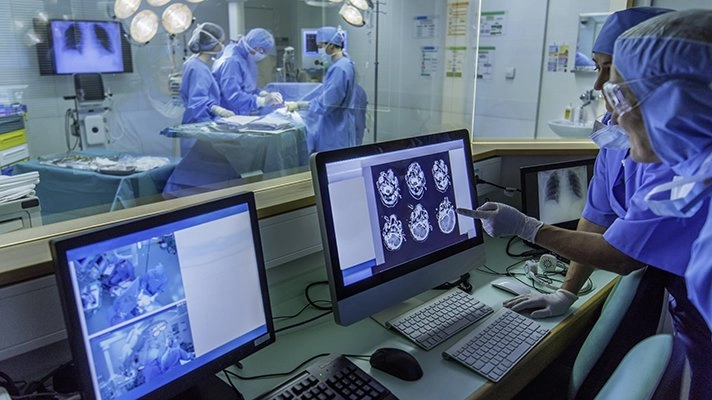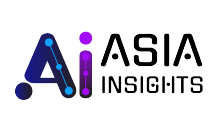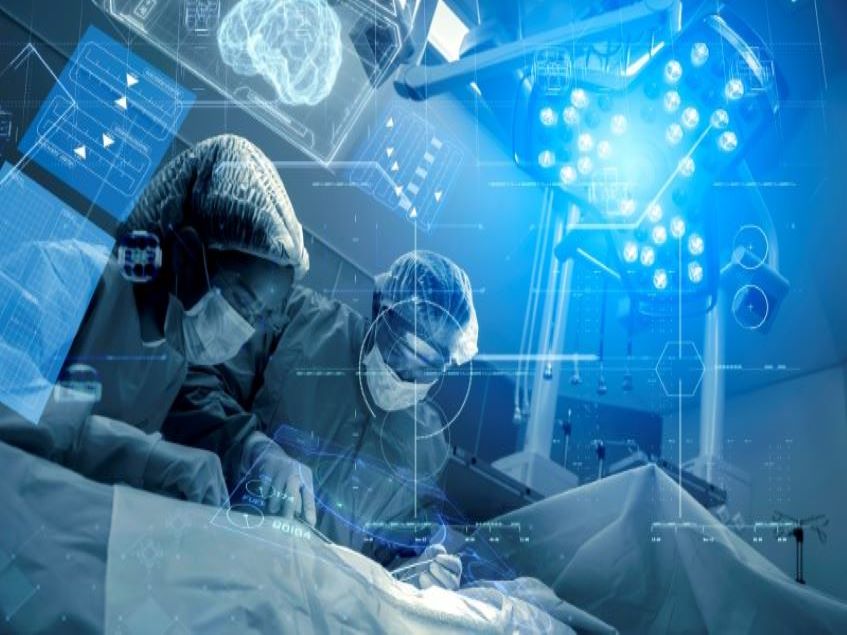AI in Healthcare – A Global Revolution
AI is revolutionizing healthcare, with big data, predictive analytics, and machine learning generating significant advances in areas such as diagnosis and treatment.
Artificial intelligence (AI) application in medicine is developing rapidly as an increasing number of people choose to utilise personal medical devices to self-monitor their health status at home. These technologies generate data that AI systems may use to identify potential issues ahead of time.
AI will aid in illness prevention by detecting and monitoring disease early on; it will also help in disease prediction by evaluating vast volumes of medical data from clinical trials or patient records. Doctors may use this data to make better treatment decisions on the basis of evidence-based protocols rather than guessing alone. Besides assisting doctors with individual patient diagnoses and treatment plans, AI can improve the quality of care across entire populations by leveraging big data analysis techniques such as predictive modelling, which helps to identify at-risk groups or individuals who may benefit most from specific treatments based on known clinical profiles (i.e., pre-existing conditions).

Transformative Applications of Artificial Intelligence in Healthcare
AI has the potential to enhance healthcare by streamlining processes while improving accuracy and efficiency.
Here are some examples of how AI can improve the quality of healthcare:
- Automation of routine tasks
- Improving workflow processes
- Answering patients’ queries
- Identifying potential problems before they lead to an error in treatment or diagnosis
- Speed up the diagnostic process
Medical imaging
AI and machine learning are helping to make medical imaging a more powerful diagnostic tool.
This is particularly true of cancer screening and diagnosis, where AI can also assist in identifying the type and location of a tumour, thus determining its stage and recommending treatment options.
AI allows doctors to read through thousands of CT scans and detect abnormalities. The technology can process images faster than humans, allowing doctors to look at more patients’ records in less time.
Medication Discovery and Drug Development
AI is also employed in drug discovery and development. AI may be used to determine a compound’s toxicity, effectiveness, side effects, and drug interactions. It can also predict chemical metabolism in the body as well as their influence on other drugs/compounds that a patient is currently taking (drug-drug interactions).
As you can see, AI is altering the healthcare landscape in a multitude of ways. Now, doctors can take better care of patients by automating repetitive tasks. This allows them to spend more time with their patients instead of doing paperwork or other administrative tasks.
Clearly, AI has enormous potential to enhance healthcare provider efficiency and safety while also increasing patient care at all levels of society.


